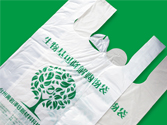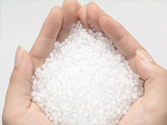Did Australia ban plastic in July? Sixty-seven countries have introduced restrictions on single-use plastic bags
In April, the editor mentioned in the article "no more free plastic bags in some stores of Woolies and Coles in Australia" that "kunzhou, Victoria and western Australia will ban retailers from July this year".
In may, "" from May 1, any Coles in Australia will no longer offer disposable plastic bags!" " "Although the ban was officially implemented on July 1 this year, many Australian giants have taken the lead," it said.
"Eight Australian state, regional and federal environment ministers have signed a joint agreement," the article said in June. The agreement sets the goal of achieving 100 per cent recycled, reusable or biodegradable packaging nationwide by 2025."
And July already arrived, did Australia ban plastic? The answer is:
Australia's Queensland state and western Australia banned retailers from offering single-use ultra-thin plastic shopping bags on July 1, meaning NSW alone did not have a ban on plastic bags in eight Australian boroughs.
Under Queensland rules, retailers could face a fine of up to 6,300 Australian dollars for providing disposable ultra-thin plastic shopping bags less than 35 micrometers thick.
On the same day, coles, Australia's second-largest supermarket chain, and IGA, another giant retailer, began a nationwide ban. Customers shopping need to bring their own shopping bags or buy reusable shopping bags.
Woolworths, Australia's largest supermarket chain, stopped providing customers with disposable plastic bags in 1,000 stores nationwide from June 20.
According to the environmental group clean Australia, Australian retailers hand out an average of about 5 billion plastic bags a year, most of which are thrown away, about 7,150 disposable bags per minute.
More than 8 million tons of plastic waste ends up in the ocean each year, with serious impacts on Marine life, fishing and tourism, and economic losses of $8 billion, according to unep. The United Nations has called for the phasing out of single-use plastics by 2022.
Also from July 1, Seattle will ban plastic straws and knives and forks altogether, encouraging the shift to reusable cutlery or compostable plastic products.
Sixty-seven countries have introduced restrictions on single-use plastic bags
At least 67 countries and regions have banned the production of single-use plastic products that cause Marine pollution, such as plastic shopping bags and styrofoam meal boxes, or charge for their use, according to a survey by the United Nations environment programme (UNEP) on Wednesday.
While there are examples of supermarkets in Japan offering plastic shopping bags for a fee, the government has not imposed restrictions on single-use plastic items or fees. Japan's failure to sign up to a document setting a target for plastic waste reduction at this month's group of seven (G7) summit highlights the lag in measures.
The United States, which refused to sign the document with Japan, did not impose restrictions at the federal level, but many local governments, including California, Hawaii and New York City, did. More than 100 local governments around the world are said to have banned plastic shopping bags, including several Indian states and the Canadian city of Montreal.
In Africa, 25 countries, led by Rwanda, which banned the production, consumption, shipping and sale of plastic shopping bags in 2008, have imposed restrictions on single-use plastics, according to UNEP.
There are also 20 European restrictions, such as the ban in Italy of using shopping bags other than biodegradable materials in the environment since 2011. It is said that, especially after 2014, the number of countries around the world that have decided to ban or charge is increasing.
China banned or paid for plastic shopping bags nationwide in 2008, and the use of large supermarkets is said to have dropped by six to eight percent.
India also banned some plastic shopping bags in 2016. On June 5, world environment day, prime minister narendra modi announced plans to eliminate all single-use plastic products by 2022. India's maharashtra state on June 23 banned the use of plastic products, including handbags and thermoplastic adhesives.
UNEP pointed out that "some countries do not have sufficient and complete legal restrictions", and said that "the number of countries and local governments adopting restrictions may increase in the future in the face of increasingly serious problems".
The ban on plastic is only the beginning of eliminating white pollution, and the participation of biodegradable plastic in the daily use of substitutes is a virtuous cycle, which is a test for the policy and the manufacturers of bioplastics, while green plastic, always ready, presents a better solution for everyone to replace traditional single-use plastics in PHA.
Article source: xinhua news agency, daily economy, etc







